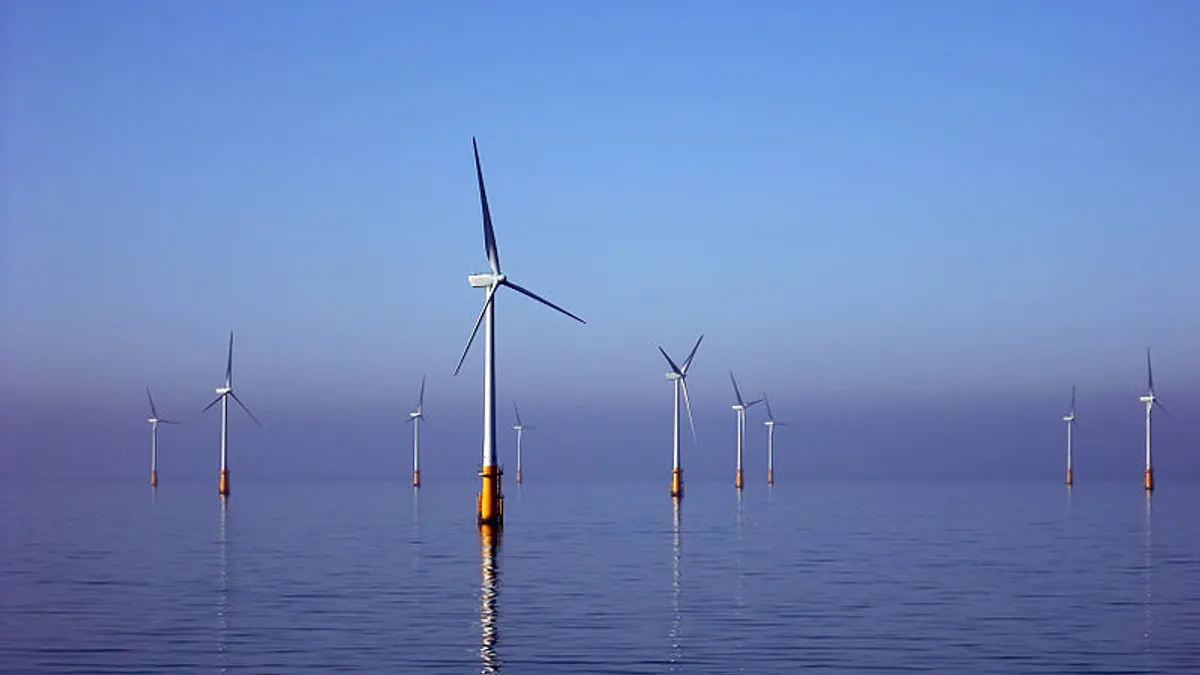Dive Brief:
- Lawmakers in the Massachusetts Senate are considering a mandate that the state procure 2,000 MW of offshore wind, a larger commitment to renewable energy than was included in a similar House bill earlier this month, Masslive.com reports.
- The Massachusetts House of Representatives voted overwhelmingly to require energy providers to acquire 1,200 MW of offshore wind power and another 1,200 MW of hydropower, within then next decade.
- The Senate's version expands on the hydro commitment, pressing instead for 1,500 MW of renewable power that could include a broader range of technologies.
Dive Insight:
Lawmakers in the Massachusetts Senate could vote on Thursday on a measure that could one-up a renewables mandate passed weeks ago in the House, broadening a push for renewable resources and allowing Cape Wind to offer a proposal, according to Masslive.com.
"The bill coming out of Senate Ways and Means is specifically designed to be bold and aggressive towards meeting our Global Warming Solutions Act goals," Karen Spilka (D), chair of the Senate Committee on Ways and Means, told the newspaper. "It's written to really foster open competitive bidding and, especially in the case of offshore wind, to encourage economic development, job creation and job growth, to have companies set up shop right here in Massachusetts."
The Senate's version goes beyond the hydro requirements contemplated in the House to encompass energy storage, solar and onshore wind projects. The bill also includes efficiency measures, such as requiring an energy audit when a home is put up for sale. And it calls for study into efficiency, grid modernization, and renewable financing measures.
"Massachusetts is first in the nation in energy efficiency, but being better that 49 other states that are doing bad isn't good enough," Sen. Ben Downing (D) told MassLive. "We know the greatest cost benefit we can achieve is by increasing our investments in energy efficiency, and we want to do so in a smart way, in a way that builds on the success we've done thus far."
Activists pushed for the larger 2,000 MW offshore wind carve-out on the House side as well, but lawmakers passed the more conservative mandate by a vote of 154-1. Environmentalists and energy companies opposed the House bill, raising questions about over costs to consumers and impacts on the state's electricity markets. Cape Wind was also excluded in the House bill.
Price has been a significant factor in holding back offshore wind in the United States, though the resource has flourished overseas. Deepwater Wind's 30 MW Block Island Wind Farm, expected to be operational this summer off Rhode Island's coast, will be the first U.S. offshore wind project, with a 20-year power purchase agreement with National Grid at $0.244/kWh.
A recent University of Delaware study concluded that developing offshore wind at scale through 2030 could reduce that price to $0.108/kWh.














